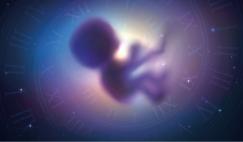Yesterday, the world lost one of the most venerable and visionary scientists of our time, Stephen Hawking; a true visionary figure who has been hailed by many as "an inspiration to millions."
Born exactly 300 years after the death of Galileo, Hawking was diagnosed with a rare form of motor neurone disease at the age of 21 and was given only two years to live. Undeterred and facing the prospect of an early death, Hawking went on to Cambridge to become a brilliant researcher and Professorial Fellow at Gonville and Caius College where his tenacity and reluctance to give in to his condition, spurred him on toward many intellectual breakthroughs.
Working with Roger Penrose, the two showed that the Big Bang could have had its beginnings from a singularity – a one-dimensional point where space and time breaks down and density and gravity become infinite – a point that is theorised to exist deep within a black hole.
Hawking also proposed that black holes should emit heat and eventually pop out of existence - a process that for miniature black holes would result in an explosion that equalled the energy of a million one-megaton hydrogen bombs. This view was not supported widely by fellow physicians however, as his hypothesis was at odds with one of the most basic laws of quantum mechanics; the survival of information. In Hawking’s theory there was no relationship between matter going into a black hole and matter coming out, whereas quantum mechanics postulates that information is stored at a black hole’s event horizon, and encoded back into radiation as the black hole radiates.
Hawking eventually conceded that it couldn’t be right, nonetheless, this work prompted a very important line of research - the need to unify quantum theory with general relativity - a Herculean task that many scientists are still trying to consolidate today.
Despite the difficulties he faced when becoming wheelchair-bound and dependent on a computerised voice system for communication, Professor Hawking held the post of Lucasian Professor at Cambridge, the chair held by Isaac Newton in 1663, holds over a dozen honorary degrees and was awarded the CBE in 1982.
But Hawking will be remembered not just for his brilliant mind, but for helping popularise science. His mischievous sense of humour earned him a regular appearance in popular comedies such as the Simpsons and The Big Bang Theory, while his book, A Brief History in Time, which sold more than 10 million copies reached out to people who wanted to learn about the Universe but who were put off by the usual physics tomes. Hawking made physics cool.
In a statement that confirmed his death at his home in Cambridge yesterday, Hawking’s children (he has three children and three grandchildren) said: “We are deeply saddened that our beloved father passed away today. He was a great scientist and an extraordinary man whose work and legacy will live on for many years. His courage and persistence with his brilliance and humour inspired people across the world.
“He once said: ‘It would not be much of a universe if it wasn’t home to the people you love.’ We will miss him for ever.”











